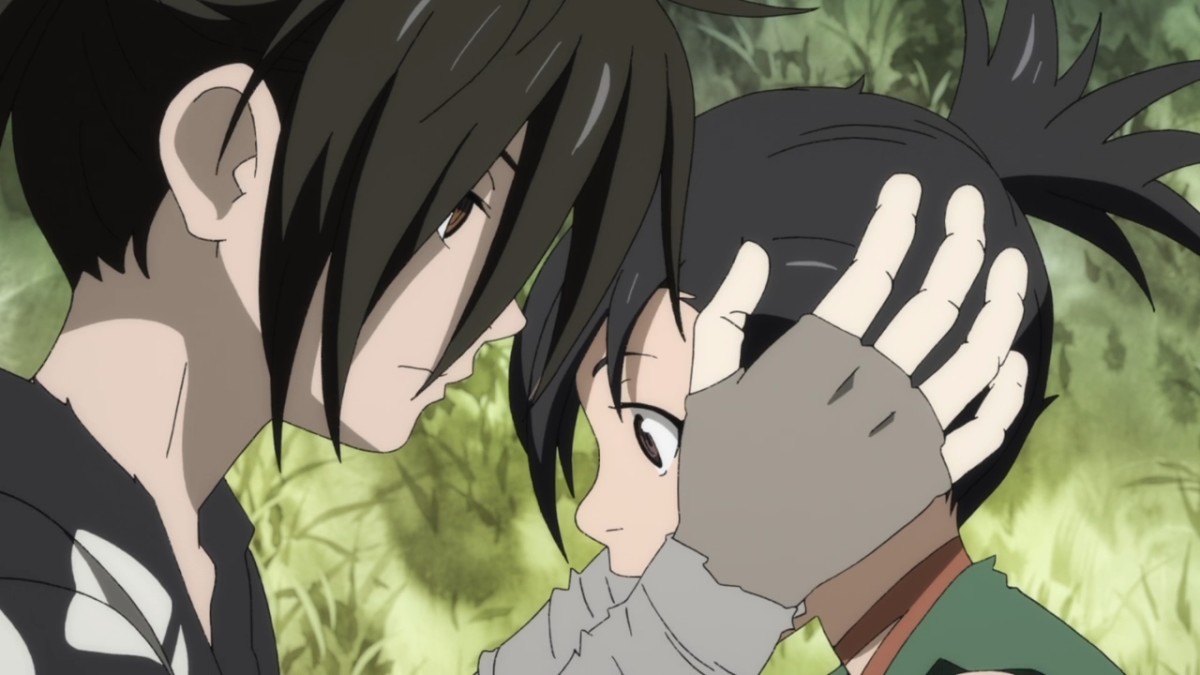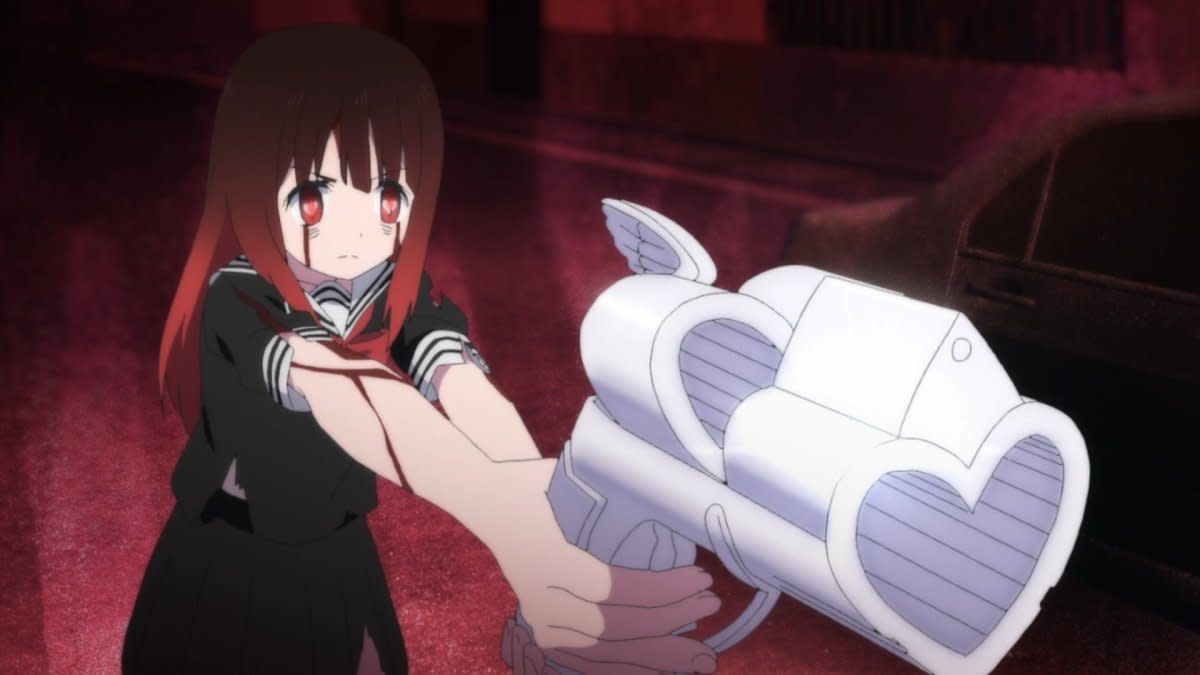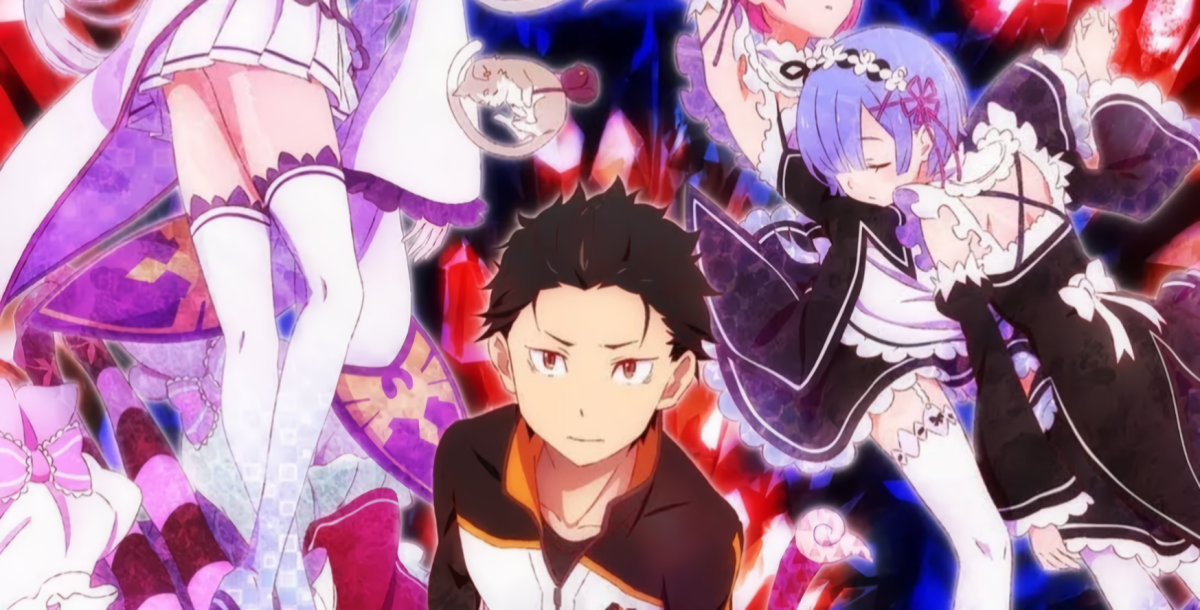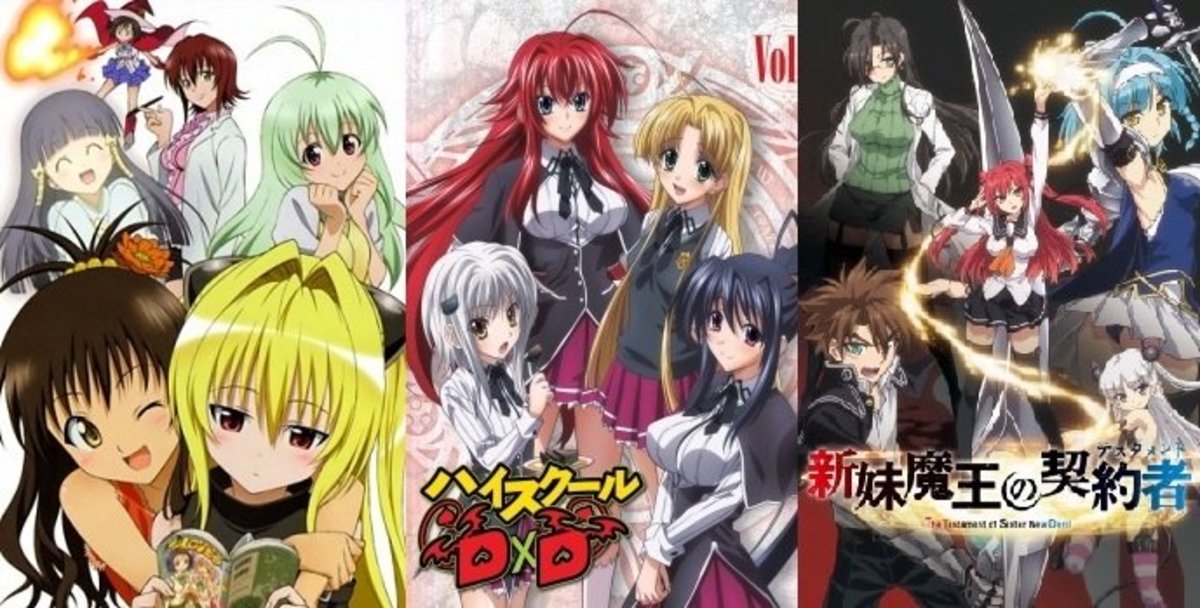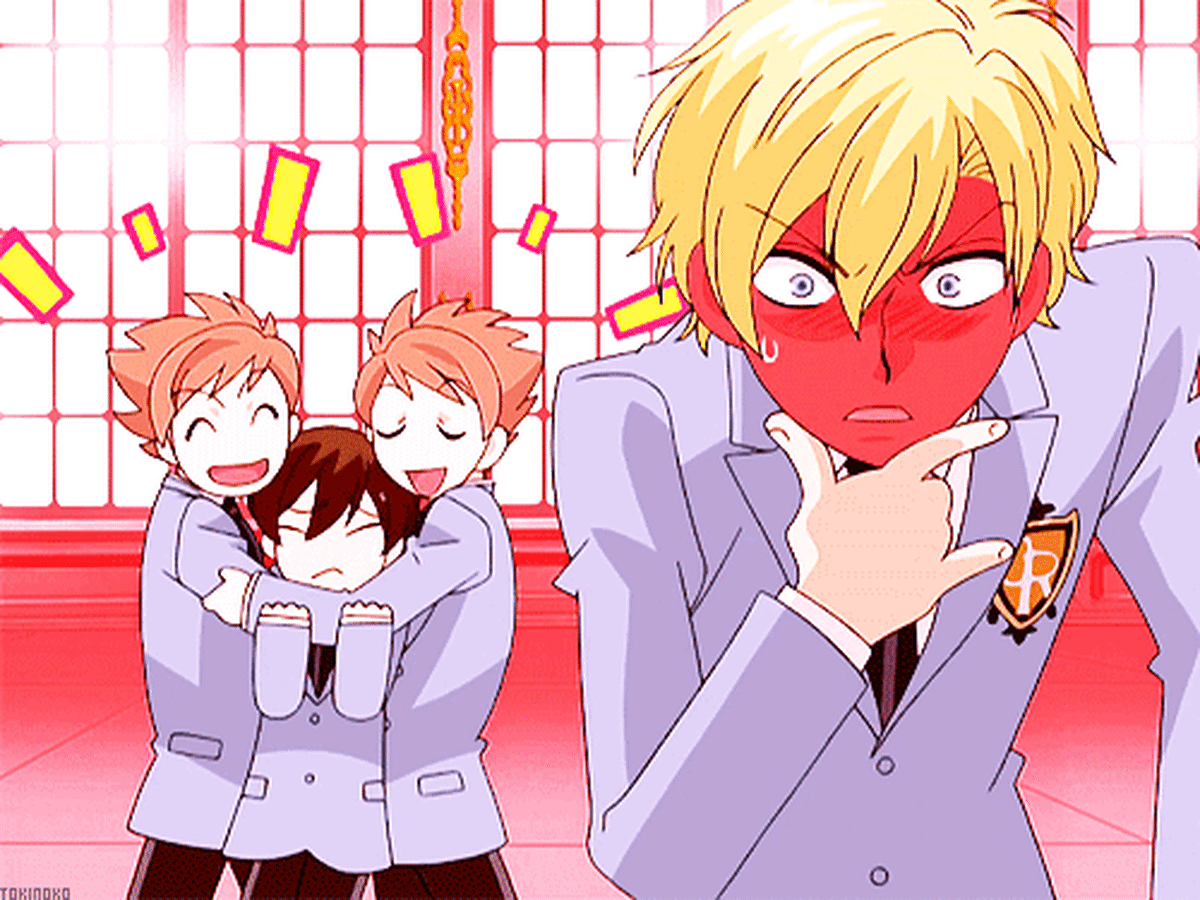Shigatsu wa Kimi no Uso (Your Lie in April) Anime Review
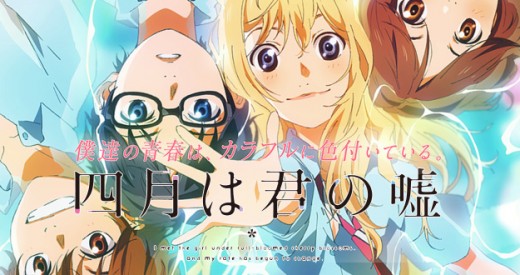
I
Warning: Major spoilers for the entirety of Shigatsu wa Kimi no Uso ahead.
Shigatsu wa Kimi no Uso has received a phenomenal amount of attention in the western anime community. It's fairly easy to pinpoint why exactly it has gotten so much focus--because it is fairly accessible, while not being overtly sexual, strange, or violent. It also tells a relatively simple story, as the way it delivers its narrative is very deliberate, and it augments most of its major points with clear-cut emotional keys that are related specifically to the show's tendency to revolve around music. It's to be expected that all of these elements are meant to emphasize strong emotional appeal, and possibly revolve around some sorrowful event that is meant to leave viewers in shambles for weeks to come. Of course all these things can be used very well, but it's come to my attention that a lot of people have strong bias to stories of this nature simply because they make them feel sad. Although it's usually good that anyone can connect to fictional characters to the point at which it elicits a physical reaction from them, this can cloud people's minds to view everything relating to these stories through rose-tinted lenses. In turn, this can make them unaware of the sheer manipulation and illogical nature that some of these stories utilize.
I was once victim of this kind of thinking at one time, so this will probably aid my discussion of this subject a considerable amount. A lot can be learned by examining why stories of this nature have this effect on people, and it's best to look at this from a less personal standpoint so as to be less emotionally affected by the unnerving truths of these situations.
II
The show’s main protagonist is Kousei Arima, who is plagued by his negative view of piano playing due to it being related to a situation he regrets that happened in the past. This leads to the main conflict of the series being internal, and most of the external elements of the show being platforms on which the main internal conflict is expressed and analyzed. This internal conflict is procedurally depicted as the series goes on, as we first get the gist of it and then it branches out to show the audience all of the circumstances that make it up and/or affect it. This works quite well at not overloading the viewer with information, and it also allows many of Kousei’s important emotions or thoughts that are associated with these different “branches” to be shown appropriately without being skipped over.
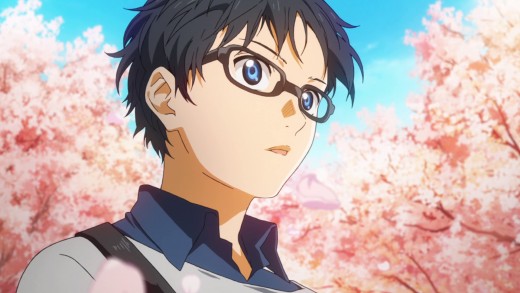
At a glance, Kousei’s entire conflict may be difficult to relate to or comprehend since its nature originates mostly from a complication that is not normal and would not generally be considered humanly possible. The conflict I’m speaking of, Kousei’s inability to “hear” piano notes that he plays, should not really be taken literally, as he can probably hear the notes, it’s just that the sounds they make remind him of his past and this leads to his senses being clouded. This is humanly possible, since it’s likely that people going into shock or being traumatized lose a great amount of sensory aptitude when in the state. But this is not the actually important part of his internal conflict, in other words, it is the result of the major conflict but it isn’t what the “actual” problem is that persists throughout the show. This “actual” conflict is how Kousei continues to be tormented by memories of his late mother to the point at which he cannot function nearly as efficiently as he would be able to otherwise.
Portraying this conflict plays a major part of the effectiveness of the series as a whole, as it would be difficult to invest oneself in a protagonist that you cannot relate to. Kousei’s inner conflict is explained through a series of flashbacks which normally relate directly to something that is presently going on in the show. It is through these glimpses into the past that we begin to understand what Kousei went through in order to enable the conflict that he is going through. This is all it really takes to make a character “relatable,” since as long as we understand what a lead a character into acting a certain way, then that is good enough. Emotions cannot be controlled in the same way that actions can, therefore it would not necessarily be fair to judge someone on just their emotions, but it would be fine to judge them on how they act on those emotions. Obviously this doesn’t mean that everyone who views this explanation of internal conflict will relate to the character whose emotions are being explained, as everyone has experienced different things in their lives and will better relate to things that are familiar to them. But a narrative cannot be held responsible for not conforming to every sense of the word “relatable” that could ever possibly exist. Still, it is probably better to at least attempt to understand someone (whether they be fictional or not) since ignoring things rarely helps anything.
Aside from the mechanics that establish Kousei into the story, there are a few things to note about Kousei. His demeanor of feebility goes along with his unfortunate past, and this helps reinforce his place in the story. The show’s random, often out of place, and unimaginative comedy hurts this image of his at times, as it seems like it is not even capable of taking itself seriously. Kousei acts the same way as most of the other characters in these comedic situations, as he goes along with an exaggerated plea of some kind or yells while temporarily turning into a chibi character. This is one element that may indicate the comedic portions of the show as being poorly done, as it doesn’t take into account the individual personalities of each of the characters in order to make the comedy interesting or diverse. Instead, it’s basically the same joke every time trying to hide its lack of creativity by use of physical exaggeration. These comedic situations are also completely out of place a lot of the time, appearing in the middle or just right after more serious moments, which greatly hinders the show’s efforts to be serious.
During serious scenes, Kousei shows the ability to exert many different kinds of moods and states of mind. This is exactly how an internal conflict based on mostly the protagonist should be done, since if a protagonist in this situation shows little diversity in thought or appears to be completely static as far as their state of mind, then it will be quite difficult to imagine them as a real person, thus debasing the credibility of the entire “internal conflict.”
Kousei’s behavior changes not only with his mood, but it also changes based on whomever he happens to be in the presence of. For example, he may be relaxed or uncaring around Tsubaki, somewhat submissive around Hiroko, or nervous around Kaori. This not only improves the variety of interaction in the show, but also shows that Kousei is someone who changes his behavior when around different people due to emotional influence. This contrasts someone who may ignore the emotions of themself or others, instead choosing to act the same around everyone. This paints Kousei as someone who places a great amount of importance on emotion, and also may have a reasonable amount of intuition when it comes to emotions in general. This furthers the details of his place in the story, as someone who does not care as much about emotions would likely not approach the situations in the same way or even have the same conflict as him in the first place.
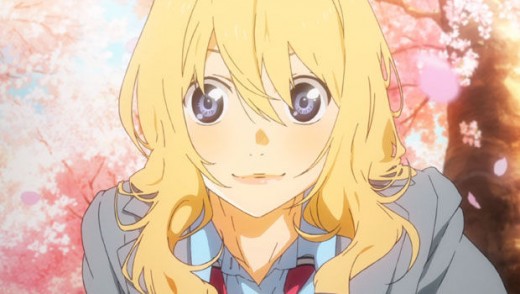
Although Kousei may seem like a “weak” person in many respects, he is quite proactive in many cases. Both of these aspects combine to reach a sort of middle ground as far as how most people will view his character. He is neither as timid as Tsukasa from .hack//Sign nor as rough as any main character from an Ayn Rand novel. This makes him quite easy to relate to for a lot of people, since he possesses a great amount of shortcomings but isn’t too slow to try to fix things.
Koari Miyazono is a sort of secondary protagonist. She experiences her own internal conflict like Kousei, but the audience isn’t deliberately told much about it and she doesn’t get much focus relative to Kousei as far as what is shown solely from her point of view. Instead, Kaori is used mainly as a sort of aid in Kousei’s conflict, though she probably did not go into things with the intention of helping Kousei, but instead for her own self-interest.
Some have stated that they believe Kaori to be of the “manic pixie dream girl” archetype, an archetype that has an intent of inspiring despairing or let down male viewers (only primarily male.) This speculation could be true, because almost the entirety of the plot is shown from Kousei’s point of view and focuses on his conflict, leaving small glimpses into the thoughts of Kaori but never giving the full picture of her until the very end. This could be trying to paint Kaori’s character as underappreciated or manipulative, but that notion is somewhat countered by Kaori’s general attitude being endearing.
Kaori and Kousei have a rather interesting character dynamic. All of their interactions have this sort of tinge to them that gives off the idea that both of them are mostly aware of each other's situations, but not entirely in the know. Their chemistry stems from the fact that their general demeanors compliment each other, with Kaori controlling the conversation a lot of the time while Kousei’s highly aware but reserved attitude allows him to say something either profound or disfigured. Kaori perceives things in a way similar to Kousei, but she is much more quick with her remarks. Since they are comparable in their perception but contrastive in method and pacing, they are allowed to always be “at the same level” in the conversation while each of them seem to exploring each other's motivations and tendencies via verbal leading. This is probably why a lot of people would find their conversations engaging.
There isn’t a whole lot else to say about Kaori as a character, since she seems oddly under detailed compared to Kousei. Maybe she never needed to receive more characterization, as her main role in the story is to assist somebody else. Still, it feels like giving her a lot more details could have made her appear less empty as a character (“empty” relative to the fact that she’s the second most important character, her place in the story and her amount of fleshing out are not at the same level).
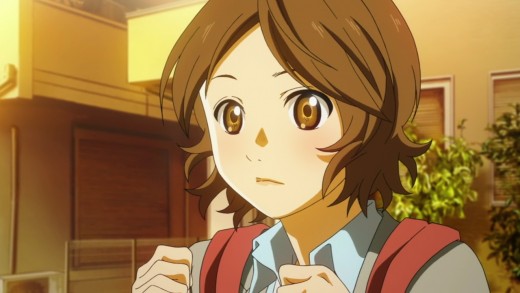
Tsubaki Sawabe is (arguably) the third most important character in the show. Her main place in the story seems to be to have her own, mostly detached conflict just like Kaori and Kousei. She also forms sort of a love triangle thing between her, Kousei and Kaori as she becomes increasingly jealous of how much attention Kousei pays to Kaori. Remember what I said earlier about showing why a character acts a certain way is the only requirement for making a character “relatable”? Well, this applies here, and it fits the requirement in Tsubaki’s case, as we’re given enough insight into the mind of Tsubaki to be able to appropriately assess why she acted indifferent with Kousei in the past, but changed her mind at the present time (well it isn’t one hundred percent clear why she acts those ways in both cases, but sometimes these sorts of emotional situations can’t quite be explained even by the person experiencing them.) Although she is by no means short of screen time in the show, it always felt as if Tsubaki was a spectator of the events of the show up until the very end.
She doesn’t appear to directly involve herself with either Kaori’s or Kousei’s internal throughout the whole show, and just seems to sit on the sideline and reminisce about her own feelings. This means that, besides the fact that she is rather acquainted with the other main characters, there is not a whole lot that connects her to the main story of the show. This in itself can cause some problems, since it seems almost futile for the writing to detail all of these intricate thoughts of Kaori’s without them, or Tsubaki’s character in general, contributing anything ultimately necessary to the rest of the story. I’d even go so far as to say that things might have been better if we never saw anything directly from Tsubaki’s point of view or heard any of her thoughts, as all of her place in the story could still have probably been inferred if the entire series took place from Kousei’s point of view. Tsubaki has the potential to be an influential and lost-lasting character, but the potential seems wasted as the majority of her characterization is relevant only to her character.
The last of the supposed 4 main characters, Ryota Watari, is even less influential than Tsubaki. Although there was one scene towards the beginning of the show that gave off the possibility that Watari would mean a lot in the series, this scene is ultimately tantalizing as his internal “conflict” in virtually non-existent after that scene. Besides a few parts here and there where Watari fills in the “guy friend” role and a few important scenes, Watari does absolutely nothing over the course of the show. It’s almost as if his entire existence is for him to be a plot device and to be a male character that isn’t the protagonist.
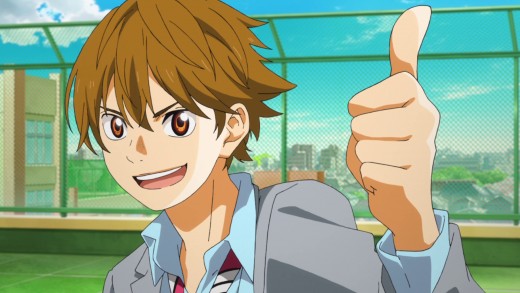
There’s two supporting characters named Emi Igawa and Takeshi Aiza which have their own background that serves to explain their indignation towards Kousei. A large part of their existence in the story seems to serve the purpose of showing a different side of Kousei’s past, which further fleshes out a protagonist who was already brimming with details. Contrary to Kousei’s somber memories of his past, Takeshi and Emi’s memories of him seem to depict him as someone prideful in his own work but uncaring of virtually anything outside of his domain. It’s interesting that they went to these lengths to show a completely different side of his character, making him feel more realistic and capable of varying perception. Despite being relative unimportance compared to the other characters, these two have their own motivations, thoughts, and personality, making them feel just as much like “real” people as the main characters do. They fulfill nothing in the story rather than give a different view on Kousei and to oppose him, which is good enough because it wasn’t necessary for them to be anything more than that.
Nagi Aiza is a girl that Kousei randomly meets who serves to indirectly resolve the remainder of Kousei’s inner conflict in the show’s second half. Although Nagi has motivations and blahbedy blah blah like every other character, she almost feels entirely unnecessary and that her place in the story could have been done by any of the underused (namely Watari and Tsubaki) characters. It’s very odd for this character to show up halfway through the show to “solve” a major part of the main conflict when that conflict could have been dealt with by any of the characters that were already far more ingrained in the story and confided by the protagonist long before this newer character was.
Of course you could say: “but Watari and Tsubaki can’t do anything with music so they possibly couldn’t have resolved this problem of Kousei’s.” While that’s true for what the show turned out to be, that doesn’t mean that the author couldn’t have written both of those characters as musicians like Kousei, putting them on much closer terms to Kousei, and possibly solving a lot of the problems I have with the show regarding the characters’ overall involvement with each other. If the author wanted to make a story about close character interactions and intimate relationships (though Kaori and Kousei’s interactions are done pretty well), then I don’t see why they didn’t make the characters more innately relatable to each other, since things like that would usually assist in making a drama-heavy story that focuses on complex character relations and interactions. But maybe the author decided to distance the characters from each other, even though it usually seems like they are on perfectly fine terms for the most part, so that the story could be full of manipulative drama that overstays its welcome.
It’s almost a self-contradiction for the nature of the show to be based so much in human emotion and similar ideas, but to oddly distance its characters for the most seemingly trivial reasons. Distancing characters made far more sense in White Album 2, because one of the central ideas of its narrative was that the characters could not learn to live entirely comfortably in each others’ presence. Even then, the reason the characters are distanced in that show so much is because they are simply not speaking all of their own thoughts, not because their amount of interactions are low. This relates back to Shigatsu in that its character dynamics work against itself in a way.
Most of the remaining characters of the show either play a very minor role, either giving a look into the world of the show or giving insight into how the main characters are viewed by others. Besides that, most of these characters serve no other purpose and have virtually no influence on the actual plot in any way. These characters help the world the show’s set in feel more real, and that was all they needed to do. However the way the ideas of these characters are portrayed is almost completely through inner monologue. Perhaps things could have felt more engaging and focused if these thoughts of theirs were instead spoken, since they aren’t major characters, but this whole ordeal isn’t a big deal anyway.
III
A complaint I’ve commonly heard regarding Shigatsu is that “the music doesn’t mean anything.” I don’t quite understand where this qualm originates from, or what exactly they mean by it, but from what I saw the music did have some meaning, as it often represents the emotions of the characters or some state of mind they’re in. This is evidenced by how the characters’ inner monologues sometimes go over what they’re feeling or thinking at the time, and how these emotions they have are depicted through the music they play. Characters other than the ones playing the music also speculate what those playing the music are going through and how that might relate to the way that they’re currently playing. If this is not enough for “the music to mean something,” then I honestly don’t know what people are referring to when they make this complaint, because I don’t know what else could have been done with the music for it to “mean something” in a way different from the one I just talked about.
The way characters interact in the show feels forced at times. Although I said earlier that most of the characters are weirdly distanced, they still manage to very unsubtly announce their thoughts to others whenever they just happen to get the chance to actually speak to each other. This is another odd contradiction. You’d think it would take a bit more interaction for them to just suddenly open up to each other.
Nothing in the show is really unclear or open to ambiguity, except for maybe the earlier episodes (even then, it’s obvious at that point that Kousei has a major problem of some kind). I’d say that this is an indicator that Shigatsu is marketed to the shounen demographic (although it definitely is a shounen, I’m not sure if this is a trait all shoujo/shounen titles share), as everything that is important is shown rather blatantly to the audience, and there isn’t a whole lot going on outside of the obvious things. This means that it’s quite easy to follow, though this also means that there exists little possible discussion regarding its ideas or themes, and the focus of the show is relatively narrow. This makes it possibly less engaging, as everything is handed to the audience, and a little silly because the characters can be overdramatic at times.
The pacing of the show is excruciatingly slow sometimes, which could be a huge annoyance for some viewers. Still, it probably needed to be that slow at points in order to properly convey what it intended to convey. These slower segments of the show are probably my favorite parts, as they’re usually where the struggles of the characters start to be portrayed in a rather interesting way, while not rushing things or putting in random comedy that would completely ruin the serious mood. One of the main things the show attempts to do is getting the audience relate to its characters, and this is done rather well at these segments where a large emphasis is placed on minute, emotional details of the characters. These scenes are kept from being dull since they’re sort of an “action” scene where things can change quickly and the reactions of the audience in the show further add to the tension, which makes it seem very fast paced even though in reality the pacing is very slow.
Things are usually kept entertaining during the concert scenes also because they hinge on giving on abnormal concert experience. Since the possibility of the characters messing up their playing is always present, it makes things feel more tense, and this is also nicely interwoven into the main conflict of the show since Kousei’s inner conflict, in a way, gains a physical representation at these points. This is because he is “battling” the piano, a situation that represents his inability to cope with the past.
The show’s ending gave off a rather anticlimactic atmosphere, as the story felt incomplete and like it was missing details. This is probably true, as the manga that the show is based on ended during the anime’s run. I doubt that the final chapters of the manga actually ended up being in the anime, since the manga ended only a month before the anime. Even if the final chapters somehow ended up in the anime, that doesn’t matter because the anime ending feels incomplete regardless of that.
One of the music scenes in Shigatsu wa Kimi no Uso
It ends with a tragedy, and very little emphasis is placed on characters’ reactions to the tragedy and how they coped with it, which would be appropriate in this case since the show focused on internal conflict mostly. If the show actually continued for longer after the tragedy, this could paint Tsubaki as a less useless character and give closure to Kousei’s feelings for Kaori, instead of just suddenly ending when it seemed like a lot more was still to be said. I often find that parts of stories where characters deal with despair are the most fulfilling and enticing parts of tragedies, and I think the show could have done far more with its story if it lasted for a few more episodes in order to show Kousei’s acceptance of Kaori’s death and his supposed struggle to face it. This is not a part of the story that deserves to be skimmed over in a few minutes, especially in relation to the rest of the story, so I suppose they decided on this ending either because they’re lazy, they didn’t want to make it “too sad,” (which in my opinion is a very silly reason, like they are trying to censor things so that people can ignore everything negative and never try to see things in different ways) or some other reason that deals more with the production details of the show.
The fact that Kaori suddenly died without her death actually being shown to us was also weird. Perhaps this was intended to create a certain reaction with the audience, but from how I see it it is anticlimactic because everything else was shown to us, so why shouldn’t a death of a major character be shown? Maybe it doesn’t matter that much, but it’s still irritating.
IV
The animation in Shigatsu is reasonably good. The overall aesthetic of the show also fits its nature and feel, as it uses lots of lighter or brass-ish colors possibly to go along with the show’s focus on emotions. The animation has very few flaws, being much better animated than a lot of newer anime these days. There’s also some points of exceptionally good animation during the concert scenes, but other than that things aren’t too astonishing because it’s mostly people standing around and talking. The use of CGI is pretty good in this series as well, as it barely sticks out in the environment, and only certain objects are ever CGI (meaning that characters and other objects do not weirdly switch back and forth between CGI and normal animation). (I find that I cannot express many of my thoughts on the visuals in actual words, perhaps I should remove this section entirely?)
The music of the show accentuates the overall feel of different scenes pretty well, and this is especially important in a show like this one due to its focus on emotion.
The music of Shigatsu wa Kimi no Uso
V
I find Shigatsu wa Kimi no Uso to be somewhat unnerving because a lot of people like it so much, yet I can’t help but think that their vision of the show is modified because of its use of music and animation direction, not because of its actual writing. The writing itself is far from bad, but I felt rather underwhelmed by it because it could have done a lot of things differently in order to better explore its themes and characters. The strongest point of the show is its protagonist and the interactions between Kousei and Kaori. Other that that, it is held back by its poor use of comedy, lack of subtlety, being inconsistent in how it utilizes its characters, (it could have better explored each of the characters’ issues and made their interactions more interesting) and its decision to not take things further with its ending. Anime such as the Monogatari series and White Album 2 have much better character interactions and depiction, so this is one of the reasons why I’m so underwhelmed by this show.


